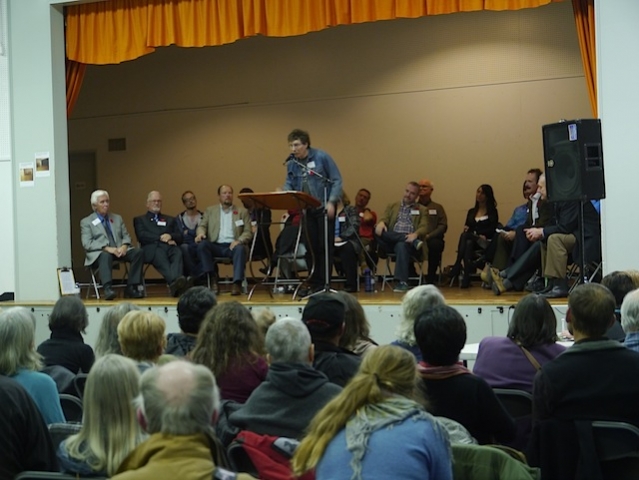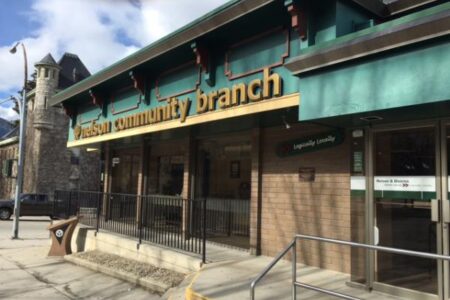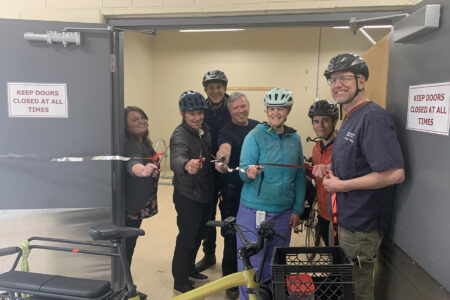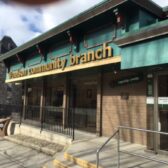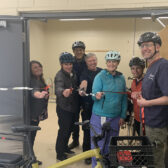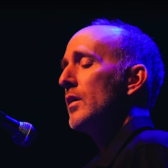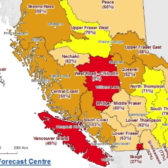Candidate forum: public's questions focus on dogs, poverty, transit, composting, and mayoral leadership style
The Central School Gym was packed to the walls last night. The stage was crowded too, with eighteen candidates for council, mayor, and school board.
It was an informative forum because the personalities of the candidates were on display, but it was not a controversial one. All candidates agreed that something needs to be done about affordable housing and climate change. Everyone agreed that we need to keep small business and the arts “vibrant” and “sustainable” and that there needs to be “broad community conversations” about issues.
The only exceptions to the safe consensus were council candidate Charles Jeanes’ radical (but still amiably expressed) socialist views, council candidate Jeff Shecter’s occasional rejection of government involvement in programs in favour of the private sector, and mayoral candidate Deb Kozak’s brief insinuation that Mayor Dooley’s leadership style is dictatorial.
The evening opened with three-minute speeches from all candidates. Then they answered questions from the pubic.
There were no questions from the public about condo development, arts and culture, the Hall Street project, business development, or the city budget.
The three questions from the public that seemed to generate the most interest among both the candidates and the audience were the dog by-law, poverty, and mayoral leadership style. Here are transcriptions of the candidates’ responses.
Not all candidates answered all questions—it was their choice whether or not to respond.
1. Do you support the dog bylaw?
Council candidate Michael Dailly
I don’t understand why we have it when businesses don’t want it, people in Nelson don’t want it, and it is not a priority. Council needs to have a special meeting and get it done. We need to still have a bylaw that makes sure that people have their dog on a leash and not leave them unattended, and have bags on Baker to encourage people to do the right thing.
Incumbent Councillor Robin Cherbo
At the last election I said, “No.” I was the only councillor that said no to allowing dogs on Baker Street. And then when it did come to council nobody seconded the motion. I think we have to take into consideration the health and safety of citizens, the seniors. I had one person walk up one side of me and down another for not allowing dogs and at the same time another senior said if dogs were allowed on Baker she won’t be shopping there, she would go to the mall. It is a balancing act. I have a proposal that the city sell leashes, with “City of Nelson” on them, and the dog licence, so the officer can see the people who are not following the rules. We need to look at the fact that some breeds… like in Vancouver, they don’t allow pit bulls and dobermans, so this is not a simple thing. It is a complex and passionate issue. I will work to see that we do this in a healthy and safe manner.
Council candidate John Paolozzi
A few years ago the American Travel Association did a survey of how many people travel with pets. It was 18%. Most of those are dogs. Ten years ago, the first time I came to Nelson, we were stopped by the by-law officer. It was one of those negatives on moving to Nelson. It does not make sense. No other city in Canada has this, and experts on travel advise the opposite.
Council candidate Anna Purcell
When I first came here I was shocked to learn of the bylaw. I assumed it was something from ages and ages ago, and I was even more shocked to find out how recently it came to be. One of the things that has surprised me since running for council is meeting so many people who are in favour of it. This has taught me that you cannot profile people by looking at them, whether or not they are against the bylaw, there are old people for and against it, young people for and against, but there clearly a lot of support for having it lifted, so I feel like we have a trial period of six months or a year, and plan for success, don’t plan for failure, put things in place like some of the other candidates have mentioned around leashes and poop bags. Then we can evaluate it. Maybe we will wonder what we were all afraid of. Or maybe we will say, “Oh, that’s why we had a dog bylaw.”
Council candidate Valerie Warmington
The dog issue, like many in Nelson, is one where the greater community participation and a wider dialogue would come to a solution that most people are happy with.
Council candidate Janice Morrison
I don’t know if I am allowed to ask a question when I am the candidate but this is one of those great yes or no questions, and I think if you asked how many of us are in favour of bringing it back to the table, we could all stand, and you could see. I am standing in support of bringing the dog bylaw back to the council table if elected. Anybody else want to stand with me? (All candidates stood up.)
Incumbent Councillor Bob Adams
When the bylaw came in it was because there were lots of dogs downtown, tied to parking meters with ten-foot cords, and they were a big problem. Now I think the atmosphere has changed. We were out the other day putting out Christmas lights on Baker and there was a dog fight on Baker, and I was glad I was half a block away because when the owners pulled to dogs apart, they were about this big, and if you were close you could have been in big trouble. But yes, I think we need to look at it and change it and have leashes and doggy bags and all the things normal people would do.
Council candidate Charles Jeanes
My professional education is as a historian and there is a history and context for why this regulation exists, and so I would say, don’t close your mind to why it is there. I think the people who passed it before had their reasons and I think if you want to get into the issue you should do yourself the favour of finding out about the context and history.
I favour the experiment, but it is an experiment, and it if turns out badly then bring back the regulation. There is a great way of regulating people, I heard the idea from Paula Kiss, former councillor, people’s leashes have a number, easily visible, like a licence plate. You do something that is against the bylaw, then people know who you are because your number is visible. It still comes back to the people who own dogs. Politics is the art of the possible, and it is not possible to please everyone. When a decision is taken you can continue to grouse about it, but when it comes back to the table and been decided, let it rest for a year or two.
Council candidate Brian Shields
I think John Paolozzi said it well when he said no other city has such a by-law. I get it from friends out of town all the time: “I am not coming there because I can’t bring my dog.” Dogs are part of the family. And this Orwellian concept of people having coloured numbered leashes? I think we just need to put our adult pants on and bring our dogs downtown. If it takes a little bit of a trial period, so be it. Let’s just get on with it.
2. How would you, as mayor, make sure that all voices are heard and that the community’s issues are truly addressed?
Mayoral candidate John Dooley
Since I became mayor I made several significant changes and one in particular, and that is I allowed council to choose their own portfolios. When I was first elected to municipal government, I was handed my portfolio by two mayors in a row. That’s how they did business. I allowed council to choose their portfolios, to build towards their own strengths and then take their passion and make those portfolios better than when they started.
I will give you two examples. Councillor Cherbo has done an excellent job with the airport. That portfolio was in complete disarray when I took over as mayor. There was a mood in the community to get rid of the airport, and Councillor Cherbo took that portfolio over and met with those people and the community and he learned that the airport was important to the people of Nelson. He went back and he challenged the airport community. He said, if you want to retain this facility there will have to be a certain financial commitment from you to make it happen. And that happened, and today they have a reserve.
Let me give you a second one. Councillor Macdonald took over arts and culture. Today we have sculptures on Baker Street. Today we have a committee that deals strictly with arts and culture. We have put more into arts and culture under my term than has ever happened in the city in the past, and that happened because I allowed council to pick their own portfolios and advance them as best they could.
Having said that, if you think being in municipal government is playing in a sandbox, it is not. It is tough at times, hard at times.
Mayoral candidate Councillor Deb Kozak
I have a different leadership style. I believe in democracy, in encouraging solid debate and discussion, and I believe people need to feel respected when they bring their ideas and their thoughts forward. That has not necessarily happened all the time in my term on council. What I want to see happen is that the door opens. The only way we can get to good solutions is that if we encourage and foster the ideas of everyone at the table. Sometimes those conversations and debates are difficult, but it is important that we have them, otherwise we do not move forward as a community. So the style I would bring is one of openness, welcoming, and let’s bring on the tough discussions.
Mayoral candidate Pat Severyn
I think that to start a new council, the council has to get together, away from city business, and form a teamwork that allows them to trust each other and be friends to start. They don’t have to be friends all the time—they believe in a structured argument, and they believe in what they are saying supported with facts not politics. I think that your council will be strong for the mayor, and a strong council that allows you to give a voice from all members of the city, only makes the mayor that much stronger. So it is a bit self-serving, for any good mayor to allow council to come forward with all their ideas. It makes the leader look better and I believe in that with all my heart.
3. Do you have a concrete anti-poverty strategy?
Robin Cherbo
I am council liaison to the Social Planning Action Network and we have grants to develop a poverty reduction plan for Nelson so that is in the works. Unfortunately the province is the last one in Canada not to have a poverty reduction plan.
Anna Purcell
The city housing committee has been working to identify the needs in Nelson and look for solutions. There are good heads around that table and I have sat in on some of the meetings and I am impressed. The city can support some of the initiatives that Nelson Cares has underway for creating more housing for people with mental health and addiction, and for seniors, support them even nominally because that actually makes them more eligible for more funding from other granting bodies like the CBT so even a few thousand dollars to something like that is something visible, so that is a simple way the city can participate in helping organizations that are already designed to identify those needs and meet them.
Michael Dailly
It really is about making it a priority. When it is a priority I believe we can make a difference, whether that means looking at what other communities are doing, groups within the city and supporting them, but it is about making it a priority and we can make a difference. And it would be a priority for me.
John Paolozzi
Everything that has been said is really good. On the affordable housing front, can we use our bylaws to create incentives for homeowners to create more suites? Hopefully that would create more housing. Can we look at all the service providers, like the Women’s Centre, and all the different organizations—do we really need to be taking taxes from them, do we need to charge them for services like water and sewer and garbage?
Council candidate Jason Peil
City Hall has a lot of rooms in it, and we were willing to give up half of it to the RDCK. We have lots of space. Why would we not give our public properties to organizations who are doing good work in our town? Create a congress of people with positive attitudes in the same place, it would give us a chance as council members to speak with non profit groups and be more involved. So I think we need to get together. And it is small, it is not a big financial problem, but it would make a huge difference, if we could get ourselves together and cooperate more.
As for poverty reduction, we have penalized landlords who come in and want to legitimize their basement suites. There are lots of illegal basement suites, and we should incentivize these by giving their water bills a good look, for example. We really have a hard time giving up any of our budget, but it would be important to taper that off sometimes to get more housing units on the market. We should inspect these places and make sure they are safe, that is really important too.
Valerie Warmington
The cause of poverty is a very complex issue and there are a lot of global forces working against us. Wealth is being concentrated in the hands of a few, globally, and we are seeing an erosion of the middle class in our own community. It is going to take all of us to really talk about this and to really look for creative solutions. I know I keep talking about this but I truly believe it is the only answer, to keep talking about it and to keep innovatively trying to find solutions that suit the problem as it is here in the community.
Council candidate Jeff Shecter
I agree that poverty is a complex issue but I think that it is related to lack of economic opportunity, and the more we can give economic opportunity to a greater amount of citizens, we have a greater chance of reducing poverty in the community.
Deb Kozak
It is not just about people within the non profit sector, or specific sectors, it is about involving all of us, and with my experience with the Nelson and Area Economic Development Partnership, this is something that has come to the table there as well and I know that in other cities in Canada and the world it is a question of breaking down those silos. When the business community and other sectors get involved, that is when an issue gets solved.
I believe it was the City of Hamilton that set as its goal that they were going to lift children out of poverty. Business people got together, researched it, identified the problem and targeted how they were going to deal with it. One of the side benefits of this is that they also addressed the issue of homelessness, which disappeared for them. It is that kind of conversation that makes a difference. And that not just on poverty reduction, it is on economic development, it is on everything, we need everybody.
Charles Jeanes
The budget will be coming up. I can imagine myself going down the budget lines, saying, “Here’s the public works line item for blacktopping, let’s take $20,000 out of that and give it to social housing. Here’s a line for promotion of tourism and industrial opportunities, let’s take $10,000 out of that and put it in social housing.” And then the debate begins. Can you imagine Jeff Shecter and I agreeing on very much? That’s politics, you don’t have to come to council meetings to watch this, you can watch Question Period in the House of Commons.
This is a really difficult issue, poverty. I have been a socialist all my life. Thinking about the evils of the capitalist ruling class drives me crazy. This is not going to be an easy one, and everyone who says we need all the community is right. Somehow we have to get to the consciousness of the 1% or the 10%. How about an income tax levied by the municipalities? Wouldn’t that be something? I have heard that coming from Andrew Coyne, a conservative commentator: give cities the power to tax the income of their citizens.
Brian Shields
My mother used to tell me if something is complex try and simplify it, and the way I simplify this issue is to say, “Be kind.” I want a show of hands here, everybody who has ever been hungry. OK. You know what it is like to be hungry. How many of you have ever been in a position where you were in a tough spot finding a place to live and you scrambled and found something, raise your hand. So a lot of you know what it’s like, and I think this is one of the things Mayor Dooley mentioned this the other day, the things that we make priorities are the things we get done.
4. Other issues: climate change, composting, First Nations, transit
There was also a question about climate change, and the candidates agreed it was important; about the inadequacy of bus service in Nelson to which some candidates responded with pledges to look at the issue and listen to the public; about aboriginal issues, to which candidates responded supportively; and composting, to which many candidates agreed something should be done, with some candidates putting forward specific suggestions.
On Wednesday, November 12, a forum for mayoral candidates starts at 7:00 pm at the Prestige.



